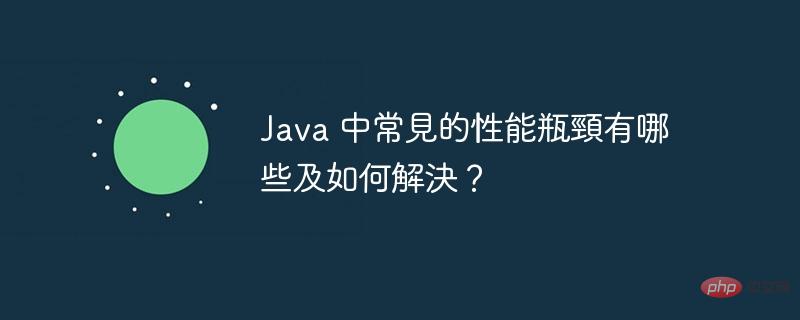

Common performance bottlenecks in Java and their solutions
Java is a high-performance programming language, but in some cases You will encounter performance issues. The following are common performance bottlenecks in Java and their solutions:
1. Object allocation
2. Synchronization
3. IO operations
4. Garbage Collection
5. Method calls
6. Caching
Practical Case
The following is a practical case for optimizing memory allocation in Java applications:
// 使用对象池重用对象
import java.util.concurrent.ConcurrentHashMap;
class ObjectPool {
private ConcurrentHashMap<Class<?>, BlockingQueue<?>> pool = new ConcurrentHashMap<>();
public <T> T get(Class<T> clazz) {
BlockingQueue<T> q = pool.get(clazz);
if (q == null) {
q = new LinkedBlockingQueue<>();
pool.put(clazz, q);
}
return q.poll();
}
public <T> void release(Class<T> clazz, T obj) {
BlockingQueue<T> q = pool.get(clazz);
if (q != null) {
q.offer(obj);
}
}
}By using this object pool, you can Reduce object allocation and garbage collection overhead, thereby improving application performance.
The above is the detailed content of What are the common performance bottlenecks in Java and how to solve them?. For more information, please follow other related articles on the PHP Chinese website!